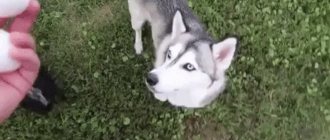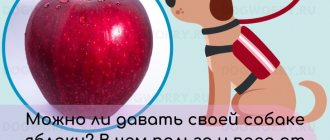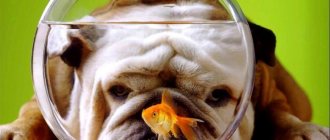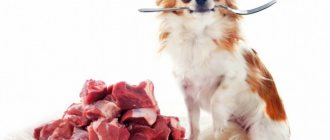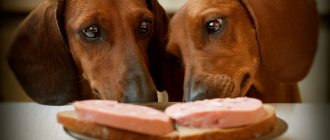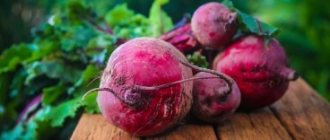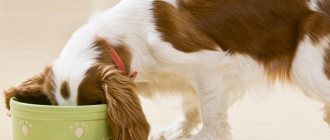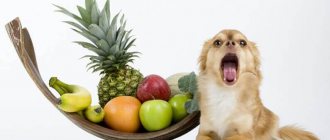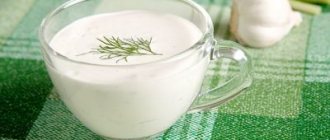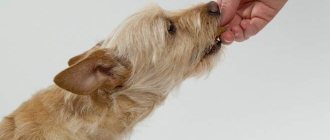The idea of natural nutrition is becoming increasingly popular among dog breeders. This raises the question: can dogs have boiled and raw potatoes? After all, this vegetable is most often found in the owners’ homes, and it’s quite simple to cook it, if necessary.
Potato pulp is based on starch. In large quantities, it can harm the animal: not only does it not provide enough clean energy for exercise and life in general, but it can also provoke weight gain or exacerbation of chronic diseases. Feeding both including and excluding potatoes must be approached consciously.
Features of digestion in dogs
Dogs are carnivores by nature, so potatoes, like many other foods from the human table, were never present in their diet before domestication. Their digestive system is designed and is ideal for digesting food of animal origin.
The structural features of the gastrointestinal tract and the short length of the intestines in dogs (compared to herbivores) stimulate plant foods to pass through the gastrointestinal tract at a faster rate. Its movement through the intestines causes increased peristalsis (due to the high content of coarse fiber and cellulose). This further increases the speed of passage. Difficulties in absorption arise, which results in gastrointestinal disorders and diarrhea.
Veterinarians say that a small amount of potatoes can be given, but only if the product is well tolerated and there are no individual reactions in the pet.
Who shouldn't it be given to?
It is not recommended to allow puppies of any age , and the consumption of potatoes by puppies under one year of age is strictly prohibited. Despite all the substances that an adult often lacks and which this vegetable contains in excess, this plant is considered poisonous. As for puppies, their bodies are not yet strong and their digestive system is weak, so eating potatoes can greatly harm them.
Do not add potatoes to the diet of a pregnant or lactating dog . During this period, the animal spends too much energy and often even loses weight, so on the contrary, it is recommended to give it more meat products - approximately 90% of the total food. Adding even a small portion of potatoes to your pet's diet can cause significant harm.
It is necessary to limit access to potatoes for a dog with intestinal diseases . If your pet has digestive problems, then this vegetable is contraindicated for him.
If your dog is allergic to many plant products, then you need to give potatoes with caution and carefully monitor the reaction. If the dog becomes ill, then no more potatoes should be given.
Potatoes are poorly digestible in small dogs . This is explained by the fact that such dogs have a less developed immune system, and eating any harmful product can adversely affect their condition.
How is the product useful?
When consumed in limited quantities, potatoes are beneficial to the animal, since to some extent they can compensate for the deficiency of certain nutrients. One tuber contains half the daily requirement of vitamin C. Of the minerals, it contains a large amount of potassium, iron, magnesium and calcium, and slightly less phosphorus, folic and nicotinic acid. It is also a source of a very valuable substance - quercetin. It is a very strong oxidant with powerful antitumor, bactericidal and anti-inflammatory effects.
What vitamins are needed?
For normal growth and development, Yorkies require the following vitamins:
- vitamin A – is responsible for the growth and development of the body, promotes the formation of new cells and tissues, helps maintain healthy skin and mucous membranes, improves immunity;
- vitamin E – antioxidant of vitamin A, prevents the formation of peroxides and infertility, regulates the reproduction process;
- vitamin D – is responsible for the exchange of calcium and phosphorus, participates in the development of bone tissue, its lack leads to rickets, frequent fractures, and bone deformations;
- Vitamin K – is responsible for blood clotting and has antibacterial properties.
IMPORTANT!
With a prolonged absence of vitamins in the diet, symptoms of vitamin deficiency appear, and excess amounts can lead to poisoning.
The most popular and effective nutritional supplements:
- Calcidee is a mineral supplement containing large amounts of calcium and phosphorus;
- Excel – contains substances that help enrich the diet;
- Glucosamine with chondroxide - helps strengthen ligaments and cartilage, promotes calcium absorption.
Veterinarians also recommend Multitonic, a seafood-based supplement that contains the amino acids dogs need:
- arginine;
- lysine;
- methionine;
- histidine;
- threonine;
- leucine;
- phenylalanine;
- tryptophan;
- valine
Potential Harm
But eating potatoes too often can cause significant harm to the animal’s body. Large amounts of starch and slowly digestible carbohydrates lead to active formation of adipose tissue. With a lack of physical activity, this is fraught with the appearance of excess weight. In addition, consuming starchy foods increases the glycemic index. Another sad result of active consumption of potatoes is the development of diabetes in dogs.
If there is an enzyme deficiency, the animal may experience individual intolerance to the product, which will be expressed in indigestion, pain, spasms, and diarrhea.
Veterinarians have calculated the optimal amount of potatoes for a pet to eat. It is 100-150 g (this is one large or two medium tubers) per week for large individuals. For small breed animals, the amount of potatoes eaten per week should not exceed 50 g (one small tuber).
A few words about the breed
What to feed your Yorkshire Terrier to give him long years of life? First, it’s worth understanding what this breed is. Yorkie is a decorative dog whose weight does not exceed 3.5 kg. On average, representatives weigh no more than 2.5 kg. Therefore, it is very difficult to create a diet so that the dog’s body receives all the necessary vitamins and minerals.
The answer to the question of what to feed a Yorkshire Terrier directly depends on the animal’s temperament. One dog can be active and playful. Another may turn out to be slow and phlegmatic. Due to differences in activity, experienced dog breeders advise selecting food on an individual basis.
Raw potatoes
The main amount of vitamins and microelements is contained in raw potatoes. Therefore, it is not recommended for dogs to heat-treat potato tubers. When preparing for feeding, you should thoroughly wash them, chop them and rub them into the main food. It is not recommended to give old potatoes. As a last resort, it should be peeled.
It is important to ensure that the dog does not come across a green tuber. It contains the plant poison solanine, which is dangerous for both humans and animals. It is especially abundant in potato peels.
In dogs, solanine poisoning causes serious illness that can lead to death. Solanine disrupts the functioning of the nervous system, negatively affects the hematopoietic organs, and causes gastrointestinal disorders. The poison is excreted through the kidneys, so the functioning of the excretory system may also be disrupted.
If there is a danger of developing these disorders, it is recommended to boil the potatoes before feeding. You should not feed your dog old or sprouted tubers. The poison content in them increases sharply.
General recommendations
For a month after purchasing a puppy, the best option is to feed it the same food that the breeder fed it, then gradually introduce new foods into the diet.
Basic feeding recommendations:
- food should be at room temperature and cut into small pieces;
- you need to feed 2-3 hours before walking or half an hour after;
- you cannot give food from the table;
- the amount of food depends on the age and physical activity of the pet;
- with a natural diet, a serving should consist of 25% vegetables, 60% protein and 15% cereal.
IMPORTANT!
Yorkies are prone to obesity, so portion sizes need to be controlled.
Heat-treated potatoes
Potatoes that have undergone heat treatment contain fewer nutrients. Boiled potatoes are ballast for the dog’s body. With frequent feeding, the dog quickly becomes overweight. Heat-treated potatoes can be included in your pet's diet, but subject to certain conditions.
You can give boiled potatoes to dogs in rare cases and in very small quantities. Baked or boiled potatoes in their jackets are more suitable for their body. Tubers prepared in this way retain more nutrients.
Why can't dogs be given fried food? It's worse than boiled. With a minimal amount of nutrients, it contains a large amount of cholesterol. In addition, during frying, carcinogens are formed in the tubers - substances leading to the formation of cancer cells. Such potatoes also contain a large amount of fat, which has a detrimental effect on the liver and pancreas.
It is recommended to feed your pet only completely cooled potatoes.
How to help a dog if it is poisoned by potatoes?
Potatoes are poorly digestible in dogs. Therefore, situations where a dog has diarrhea from boiled potatoes, weight gain from eating boiled potatoes, or other side effects are often described on breeder forums. Actions in case of pet intoxication with potatoes should be as follows:
- Give him activated charcoal or an absorbent, put the tablet on the root of his tongue and force him to swallow.
- If possible, give your pet an enema before taking the medicine to quickly remove toxic substances.
- If the tablet is not available, induce vomiting by pressing on your pet's tongue with your fingers, but do not do this if there are seizures.
The first signs of potato poisoning appear within three hours in puppies and up to six hours in mature animals. It can be identified by the following signals: difficulty breathing, refusal to eat, poor coordination, apathy, cough. In the worst case scenario, a dog who does not like raw or boiled potatoes may fall into a coma.
Self-medication for signs of a serious problem is prohibited. Call the veterinarian immediately or take the animal to the clinic yourself. For rehabilitation, the pet will need an IV, and only a professional veterinarian can install it. But in order for him to choose the right treatment strategy, tell him about your suspicions of potato poisoning. Most likely, it will be the cause of an unfavorable condition. Fresh or unripe tubers, mashed potatoes, and boiled pieces of vegetables can lead to such consequences.
When potatoes are contraindicated
Some animals are not recommended to be given potatoes due to the increased risk of developing gastrointestinal disorders:
- Puppies. The body of a young dog reacts negatively to this product because its enzyme system is not yet perfect. It is strictly forbidden to give potatoes to individuals who are not yet one year old.
- Pregnant and lactating dogs. Their body experiences significant stress during the period of bearing and feeding babies. Therefore, the diet of these dogs should consist only of easily digestible food.
- Pets with a sensitive digestive system and chronic diseases of the stomach and intestines should also not be given potatoes.
- Animals with an allergic body should introduce the product into their diet with extreme caution.
This product should be given to dogs for the first time under close supervision. Attentive owners monitor the well-being of their pets and if there is a negative reaction (diarrhea, indigestion, allergies, poor health), they no longer give the treat.
Content
1. About the benefits and harms of potatoes 2. How many potatoes can a dog have 3. In what form should you give them 4. To whom are potatoes prohibited?
Potatoes are often called “second bread”. To be honest, this product is the most popular in almost every home. Therefore, even those owners who strictly monitor the diet of their pets have incidents - either the dog grabs a piece of boiled potato from the table, or the owner himself treats it with a spoonful of mashed potatoes, without asking himself the question - is it possible to give the dog potatoes?
First aid for poisoning
If poisoning with low-quality potatoes does occur, you should immediately provide first aid to the animal. This will mitigate the consequences and facilitate further treatment.
The main actions are:
- provoke vomiting (give the animal a weak solution of potassium permanganate);
- give an adsorbent drug (Smecta, Polysorb, Activated carbon, Enterosgel);
- take the animal to a veterinary facility as soon as possible.
If fed correctly, potatoes may well be an integral part of an animal's diet. Veterinary companies involved in the development of professional food recipes that we give to dogs introduce potatoes into their composition, but only after the starch has been removed from their pulp.
How to feed a puppy?
During the first weeks after birth, the puppy eats only mother's milk.
Complementary foods are introduced to a one-month-old puppy, gradually adding new products, as shown in the table:
| Age | Menu | Number of feedings |
| 1 month | Lean meat, cottage cheese, kefir, warm milk | 6 |
| 2-3 months | Meat, low-fat sea fish, kefir, low-fat cottage cheese, vegetables (beets, bell peppers, pumpkin), green apples | 5 |
| 4-5 months | The diet remains unchanged | 4 |
| 6-12 months | To the previous menu you need to add boiled beef heart or liver | 3 |
A one-year-old puppy should be fed twice a day: morning and evening.
Newborns
What to feed a newly born Yorkshire Terrier puppy? As a rule, they are born very small, the weight of newborns rarely exceeding 120 grams. In the first two weeks, the responsibility for feeding them rests entirely with the mother. It is important that puppies experience daily weight gain.
If the dog that gave birth does not have milk, you can use formula milk, which is sold at a pet store, to feed the puppy. Of course, you don’t have to buy it; you can make it yourself. This requires cow, sheep or goat milk. Boiled mashed stomach is added to it. The feeding interval is 1-2 hours.
At the age of two weeks, you can gradually add fermented milk products to the diet - yogurt, cottage cheese, fermented baked milk, kefir.
3-4 months
What to feed a 3-4 month old Yorkshire Terrier puppy? At this age, the animal should already be switched to dry food if it is planned that it will eat it. Of course, you can only give him special brands that are intended specifically for puppies. Feeding is carried out three times a day. You should not leave food in a bowl, as this can lead to overeating. At this age, you can already exclude dairy products. However, once a week you need to treat your puppy to a raw egg.
Will the food be natural? In this case, the puppy has access to all the products that are present in the diet of an adult.
1-2 months
What does a Yorkshire Terrier eat per month and what to feed the puppy? Already at this age, representatives of the breed begin to be transferred to an adult diet. The menu should contain a small amount of raw meat. It is important that the product is frozen beforehand, this will help prevent infection with helminths. Thawed meat can be twisted through a meat grinder or finely chopped. It is also necessary to scald it with boiling water.
At 1.5 months, you can introduce boiled sea fish, boiled cereals, and finely chopped boiled vegetables into your Yorkie’s diet.
What to feed a 2 month old Yorkshire Terrier puppy? It depends on how the dog will eat in the future. If you plan to give the animal natural food, then the products remain the same. The frequency of meals can be reduced to four times a day. If your Yorkie will eat dry food, then it’s time to start switching him to it. You should definitely add fermented milk products to your diet.
Dry food
Which diet is better is a question that has been the subject of debate among veterinarians for several years now. What to feed your Yorkshire Terrier at home, how to choose between natural food and dry food? What are the advantages and disadvantages of ready-made food?
The positive features of dry food include the lack of time required for preparation. Pet food is simply purchased at the store and poured into a bowl; no additional manipulation is required. Food can be purchased in stock, so you don’t have to constantly go for it. In addition, your pet is less likely to need vitamin supplements, since they are already included. However, along with useful microelements and vitamins, the dog inevitably receives a certain proportion of preservatives. First of all, this applies to cheap feed.
The main advantage of natural nutrition is its natural composition. The owner can rest assured that the pet’s diet is free of various chemicals that can cause harm to the delicate body. Natural nutrition is easy to adjust, while dry food cannot boast of variety and has the same composition. However, the diet is compiled “by eye”, and therefore the dog may not receive enough certain microelements and vitamins. In addition, constant cooking requires a significant time investment.
